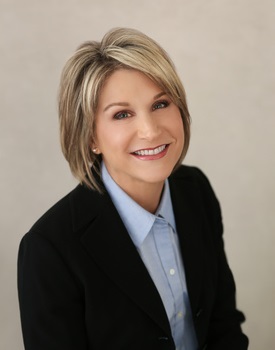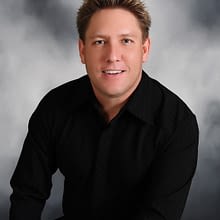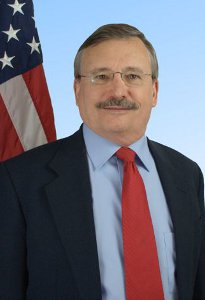On the surface, it seemed like a perfunctory request.
The state Cosmetology Board wanted to repeal one sentence in state regulations because it said it contained outdated language and conflicted with state law.
But the agency’s request infuriated lawmakers who demanded the agency withdraw the proposal to repeal the rule, fearing it could further isolate seniors in nursing homes.
The agency wanted to repeal a rule that allows cosmetologists to work outside of one of the board’s licensed facilities, such as at a nursing home or a hospital.
They said repealing the rule would not have substantially changed policy. However, it has since backed off the proposal for further review.
The industry had interpreted the current regulation to mean that salons in adult care homes, nursing homes and other similar facilities didn’t need to be licensed by the state Cosmetology Board.
Four groups – the Kansas Health Care Association, Kansas Adult Care Executives, LeadingAge Kansas and the Kansas Hospital Association – opposed the repeal.
“We think repealing it will cause mass confusion for providers, for residents and for cosemetologists about whether they can even come in and provide services for our residents,” said Rachel Monger, the lobbyist for LeadingAge Kansas.
Lawmakers from both parties said the proposal was ill-timed, fearing more regulations could potentially shut down services to seniors in nursing homes, where family visits were severely restricted during the pandemic.
They admonished the agency for not thinking about the impact the rule would have Kansans.
“I am just shocked that you want to change this,” said Republican state Rep. Barbara Wasinger, who chairs the Joint Committee on Administrative Rules and Regulations.

“When you start messing with our parents, our seniors, it’s a problem,” Wasinger told the Cosmetology Board’s executive director during a hearing last week.
“When you start making rules and regulations that are well outside of your scope, it is a huge problem, and it seems to be a bipartisan problem,” she said.
The proposed rule change – while wonkish in nature – illustrates what some lawmakers think about the rule-making process in Kansas and want change.
Earlier this year, leading Republican lawmakers proposed a constitutional amendment that would give the Legislature the power to veto rules and regulations adopted by executive branch agencies.
And this isn’t the first time the agency has been accused of overburdening commerce.
A Johnson County cosmetologist and her family are suing the state Cosmetology Board over what they say are excessive regulations for eyebrow threading.
The board has since backed off the request to repeal the salon rule and wants to meet with lawmakers to resolve questions about its regulatory duties.
It has asked for another legal review of its regulatory authority and has created a subcommittee to explore the issue further.

“We’re not in disagreement that we can work this out,” said David Yocum, chairman of the Cosmetology Board.
“I always turn a negative into a positive so I think there’s a great opportunity to work with this committee and see what we’re faced with,” he said.
Questions still linger about the agency’s regulatory jurisdiction and whether the state is duplicating inspections at salons in nursing homes and whether the agency was trying to bypass lawmakers with the rule change.
“I am concerned about regulations that restrict the rights of senior citizens,” Wasinger said in an interview.
“I have a deep concern about rules and regulations in the state of Kansas, and this is a perfect example,” she said.
The agency said the effect of repealing the rule would have been negligible since it was already licensing and inspecting salons in nursing homes and hospitals.
It was unknown, however, how many assisted living facilities and hospitals had salons that the Cosmetology Board inspects.
The agency only tracks licenses by address, not facility type.
And lawmakers criticized the Cosmetology Board for not doing enough to consider the financial impact of the rule change.
Democratic state Rep. John Carmichael of Wichita questioned how the agency arrived at the conclusion that the rule repeal would not have a cost.
Carmichael asked what the agency did to solicit information from the public about the impact of the rule change.
“The only thing that your board tells us they did regarding consultation with these other outside entities was that the board discussed and reviewed the regulation changes in an open meeting where public comment was offered,” he said.

“You did not fulfill your statutory obligation to go out and consult with the affected businesses to find out what the impact of your regulation would be.
“Instead, you all sat around in your own committee meeting, or board meeting, and asked each other if you thought it would cost anybody else any money and concluded, ‘No, it won’t, so we’ll just go ahead and do it,'” he said.
Laura Gloeckner, the agency’s executive director, told Carmichael the agency did fully vet the proposal and that it didn’t have a cost.
She said the position of the board was that the statute – not the regulation – required the licensing and inspection of the salons.
“If you are going to provide beauty salons in these places, they should meet or exceeed the expectations of a salon anywhere else,” she said.
Yocum said salon services at nursing homes, adult home and other similar facilities would not have been affected by the repeal of the rule.
“This was not removing the ability to have services done at any home anywhere,” said Yocum, the Cosmetology Board chairman.
“In absolutely no way, shape or form is that even close to what this was doing,” Yocum said in an interview.
Yet some advocates expressed concern that repealing the rule would have opened the door to inspecting more facilities with salons.
Monger said she thought there was a small minority of retirement communities with salons that are now licensed by the Cosmentology Board.
“It’s a small number of adult care homes that actually have a license,” said Monger, whose organization advocates for the needs of seniors.
“If the Board of Cosmetology won on this whole issue, they would start inspecting anywhere between another 600 and 800 sites that would have to now be licensed as salons,” Monger said in an interview.
Monger said requiring licensing in adult care homes would strain their budgets and compromise care.
“It comes at a cost that is not only significant but for many is overwhelming,” Monger told the committee.
“I cannot stress enough how few resources adult care homes have in general but especially right now as we’re trying to overcome the worst pandemic and disaster for us in living memory,” she said.
Legislators point out there is language in different parts of state law that seems to exclude salons in nursing home or adult care homes from licensing and inspection.
Advocates for seniors noted that one specific law exempted adult care homes from the administrative rules and regulations of the Cosmetology Board.
Agency officials told lawmakers they believe they must do inspections of all salons in adult care home and hospitals.
“We’re told we’re responsible,” Yocum said during an interview.
“We’re doing what we’re told we were responsible for. If that’s in conflict and there’s another avenue legislators want to go, we’re fine with that.”
A few years ago, the board’s attorney told the agency it was responsible for licensing and inspecting salons in nursing homes, adult care centers and assisted living centers, Yocum said.
“There is disagreement on this legal review, so I have asked for this second review and the board agreed,” he said.
“This will provide clarification so we can properly move forward and work strategically with all parties involved to find a mutually agreed solution.”
When the board’s executive director first presented the proposed repeal, she said the rule the agency wanted to repeal conflicted with state statute.
When asked how it conflicted, Yocum said it was more a matter of confusion than an outright contradiction with the law.
“People look at the regulation and don’t follow the statute,” he said.
The issue is compounded by the fact that the Kansas Department for Aging and Disability Services already inspects salons at nursing homes or adult care homes, but it doesn’t apply the same state health standards used by the Board of Cosmetology.
KDADS inspects about 800 facilities statewide under its jurisdiction for overall safety, such as the secure storage of chemicals, cleanliness and sufficient infection control, a spokeswoman said.
KDADS applies the same inspection guidelines to a salon in a nursing home or an adult care home as it would apply to the entire facility.
“I believe there have been cosmetology services provided in adult care homes for many, many years, which have not been inspected by the state Board of Cosmetology,” said Democratic state Rep. John Carmichael, a member of the rules committee.
“They simply didn’t need to do that right now. They could have left things as they are and as they have been, rather than acting on their own.”












